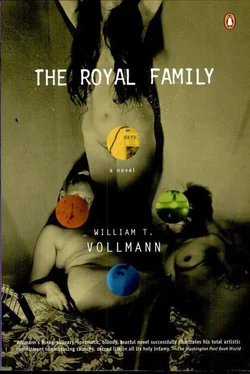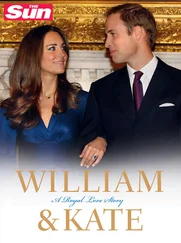They knew very well that John was thinking about leaving. For one thing, all junior partners thought that way. Industry policy as much as personal cunning had taught Mr. Rapp and Mr. Singer to make the young ones work as hard as possible. That way, they themselves didn’t need to work as much; they deserved to coast a little now, after all! (Mr. Rapp had already begun to talk about retirement.) And if John, Roland, Ellen or even Yancy left, then the bosses would have already gotten their money’s worth. The other half of this pincer movement was to pay high bonuses, and to imply that promotion was within sight. This invariably resulted in more work for more years. I cannot accurately claim that John understood this, for to him the minds of others were not simply those proverbially closed books, but closed books which he had no interest in reading. And had it been explained to him, it would not have affected him in any way, unlike Roland, who would have slammed his fist in his palm and shouted: Those bastards! then taken a long lunch on the company and hurried defiantly back to work. Most likely Roland in all his defective elegance had already done precisely that. Call him Abel. His only mistake, which of course Mr. Rapp and Mr. Singer tacitly encouraged, was to flatter himself that he truly belonged to the circle. Ellen was a cipher, and Yancy a drudge. I’ll give them no space in this book. As for John, he studied his own interests well, but the motives of others offered him small relevance. (One result of this thinking was that he grew surprised, even infuriated, by actions of others which he had not foreseen and which, therefore, might appear to him as betrayals.) At any rate, if he performed his share, and more than his share, then the cup of success must inevitably fill, no matter how he judged others, or others him. In Irene, of course, he’d won a true companion, who’d drink of that cup with him as it brimmed, and who accordingly must grow happier and happier. Meanwhile he worked, and went out with his friends, most of whom, like Roland, had not yet married; it was to be expected that they sometimes flirted, and when they did, he would, too, which was why Hank now chanced upon him holding a woman’s hand.
Tyler’s first thought was to drive on, in order to avoid embarassing his brother. But then he wondered whether John had seen him, or recognized his car; John had an eye for cars, especially cars which had once belonged to John. Unhappy and ashamed, he rolled slowly to a parking spot half a block ahead, locked the doors, and walked back to the apartmentfront, while rain ran down the back of his neck.
Apparently he had done exactly the wrong thing, because John hadn’t seen him. He was now passionately kissing the girl, who of course opened her eyes and, spying Tyler over the back of John’s head, panicked and pulled away. John turned around quickly.
Hello, John, said Tyler.
He knew the girl. Her name was Celia Caro, and she worked for an insurance company in the financial district. John had introduced her once at a miserable party which Tyler had regretted going to. She and Irene had met several times.
So you’re snooping again, said John bitterly.
Tyler dealt with this as he had dealt with the black man’s comment about Irene’s race, by deflecting it. In the years he’d devoted to his job, which did indeed involve snooping, he had learned that this was the best way to prevent truculence from gaining its desired stranglehold. — I just happened to be driving by and I saw you, he said. Wondered if I could buy you a drink. You’re welcome also, Celia.
I have an interview early in the morning, said Celia awkwardly.
All right. How about you, John?
You know what? said Celia. I’m standing here in the rain, and I’m not getting any drier. I’m going to bed. Goodnight, Hank. Goodnight, John.
Goodnight, said Tyler.
John said nothing.
They walked silently around the corner, and John said: Here’s a good place. This Branden’s.
Ah, thought Tyler to himself. So he comes here often.
And how was dinner? said John when they were seated at the bar of this rather ferny and overpriced watering hole — a John kind of place, thought Tyler. Slow, silent, massive fanblades turned like windmills.
Very good, thanks. Sorry you couldn’t make it.
Sorry I couldn’t make it, agreed John with what his brother suspected of being sarcasm, gulping half a Scotch rather savagely. I was wrapping up the Peterson case. You read about it in the papers?
No.
Oh, well, forget it. Somebody got terminated and somebody else is suing.
You’re suing?
Exactly, said John proudly. Tyler relaxed. He had begun to make his brother happy.
But that narrow, immensely powerful mind kept whirring in its narrow track, like a snowmobile circling round and round at rope’s end, grinding deeper into the powder until it finally grazed hardfrozen earth, and John said: Was it to spy on me that you came here? That’s all you do day and night, your filthy spying.
John, I didn’t know you were with Celia, and until now I didn’t know where Celia lives.
And you’re going to fuck me around with Irene, aren’t you? You’re going to tell Irene, aren’t you?
No, I’m not, said Tyler easily. He was so used to humoring people that promising the moon came readily to him. It was a reflex. He did not have to decide whether or not to be bound by that promise until later. Besides, he could not think of any earthly or celestial reason why he ought to make Irene sadder.
Slowly the light faded from those glaring eyes. John trusted him. Tyler finished his beer. He wanted to do something with his hands, so he signalled the bartender for another.
Have you called Mom lately? said John.
Tyler knew that John hoped to catch him out. As a matter of fact, he had telephoned their mother just yesterday, but John would be annoyed not to have that to reproach him for.
Not lately, he lied. How’s she doing?
Fine, said John, stirring his drink. Then he said: I talked to Mom for about five minutes at lunchtime. She’s having chest pains again. She said that you called yesterday, he added triumphantly. I guess you just can’t be straight with people even if it’s more trouble to be crooked.
Oh yes, said Tyler. That’s right. I did call her yesterday. But she didn’t mention her chest pains to me.
Are you saying her condition isn’t serious?
No. I guess I’m saying that she tells you more than she tells me.
(This was another lie. His mother had informed him of her chest pains, but he wanted to flatter John.)
You’re crooked through and through, said John happily.
Tyler was cold and tired rather than angry. He did not want to see his brother again for a long while. But he had been trying sincerely to please him, and he had succeeded. He felt in some strange way needed, hence worthwhile. Then there was Irene. He couldn’t forget Irene.
Rows and rows of inverted glasses crouched upon the shelf before his eyes. They were precious crystalline fruits filled with the light of emptiness. His eyes began to hurt when he stared at them, so he gazed around the barroom and was pleased to discover between the notes of loud but muffled music worshipful young girls and boys, gracious old baldies, starry-eyed men who longed to get into the pants of the women they were buying drinks for, loud-talking boyfriends explaining and explaining, girls out together, shaking their heads at each others’ wit. A drunken blonde was bowing and clutching her crotch as she waited for the women’s room.
And how’s everything at work? he asked, wondering if he were repeating himself.
Fine. We just got a six-million-dollar case but I don’t know how deeply they’ll let me sink my teeth into it. Oh, I guess I told you about it already. The Peterson case…
Читать дальше












